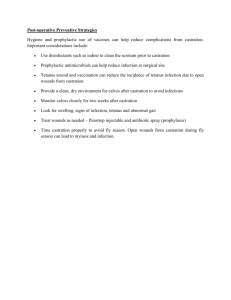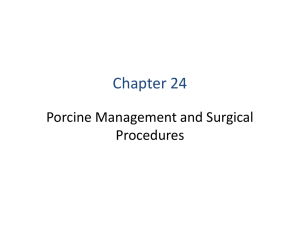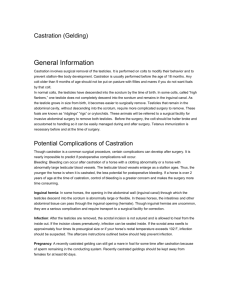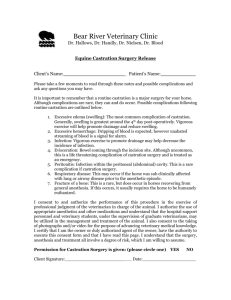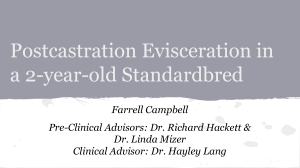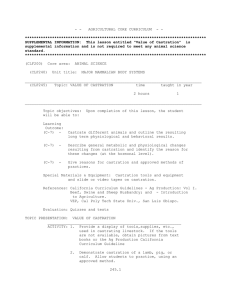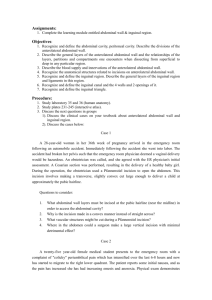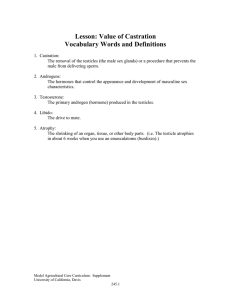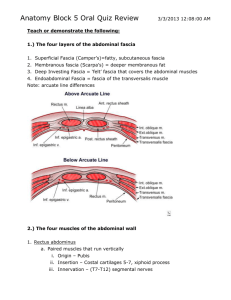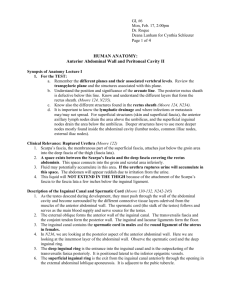POTENTIAL COMPLICATON OF CASTRATIONS
advertisement
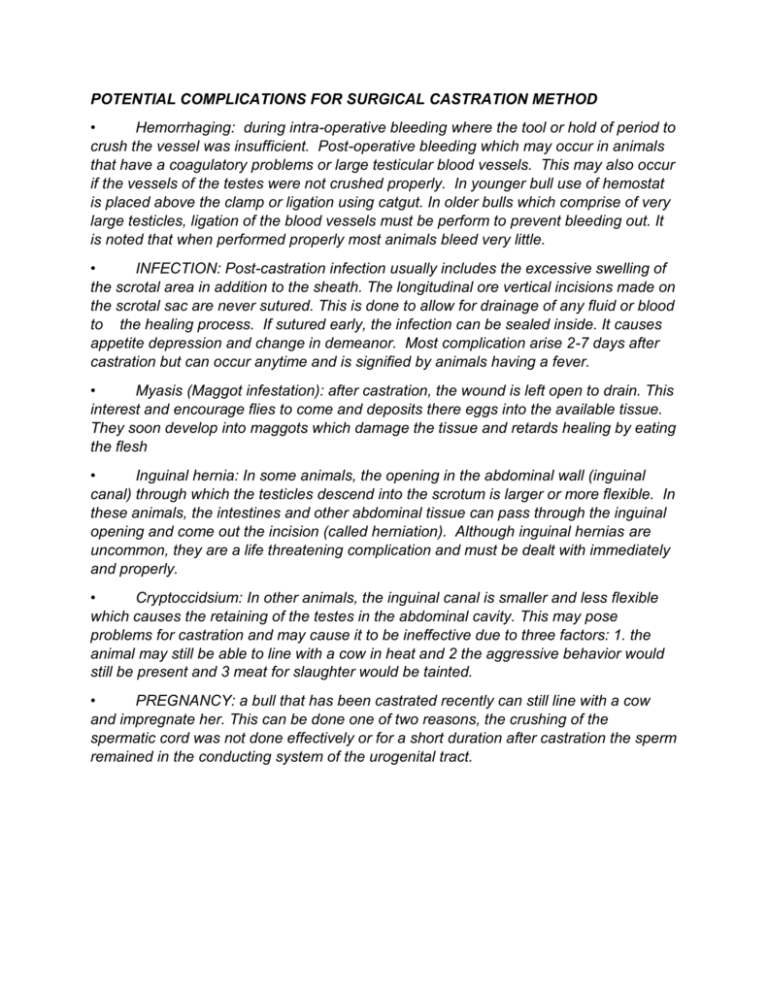
POTENTIAL COMPLICATIONS FOR SURGICAL CASTRATION METHOD • Hemorrhaging: during intra-operative bleeding where the tool or hold of period to crush the vessel was insufficient. Post-operative bleeding which may occur in animals that have a coagulatory problems or large testicular blood vessels. This may also occur if the vessels of the testes were not crushed properly. In younger bull use of hemostat is placed above the clamp or ligation using catgut. In older bulls which comprise of very large testicles, ligation of the blood vessels must be perform to prevent bleeding out. It is noted that when performed properly most animals bleed very little. • INFECTION: Post-castration infection usually includes the excessive swelling of the scrotal area in addition to the sheath. The longitudinal ore vertical incisions made on the scrotal sac are never sutured. This is done to allow for drainage of any fluid or blood to the healing process. If sutured early, the infection can be sealed inside. It causes appetite depression and change in demeanor. Most complication arise 2-7 days after castration but can occur anytime and is signified by animals having a fever. • Myasis (Maggot infestation): after castration, the wound is left open to drain. This interest and encourage flies to come and deposits there eggs into the available tissue. They soon develop into maggots which damage the tissue and retards healing by eating the flesh • Inguinal hernia: In some animals, the opening in the abdominal wall (inguinal canal) through which the testicles descend into the scrotum is larger or more flexible. In these animals, the intestines and other abdominal tissue can pass through the inguinal opening and come out the incision (called herniation). Although inguinal hernias are uncommon, they are a life threatening complication and must be dealt with immediately and properly. • Cryptoccidsium: In other animals, the inguinal canal is smaller and less flexible which causes the retaining of the testes in the abdominal cavity. This may pose problems for castration and may cause it to be ineffective due to three factors: 1. the animal may still be able to line with a cow in heat and 2 the aggressive behavior would still be present and 3 meat for slaughter would be tainted. • PREGNANCY: a bull that has been castrated recently can still line with a cow and impregnate her. This can be done one of two reasons, the crushing of the spermatic cord was not done effectively or for a short duration after castration the sperm remained in the conducting system of the urogenital tract.
